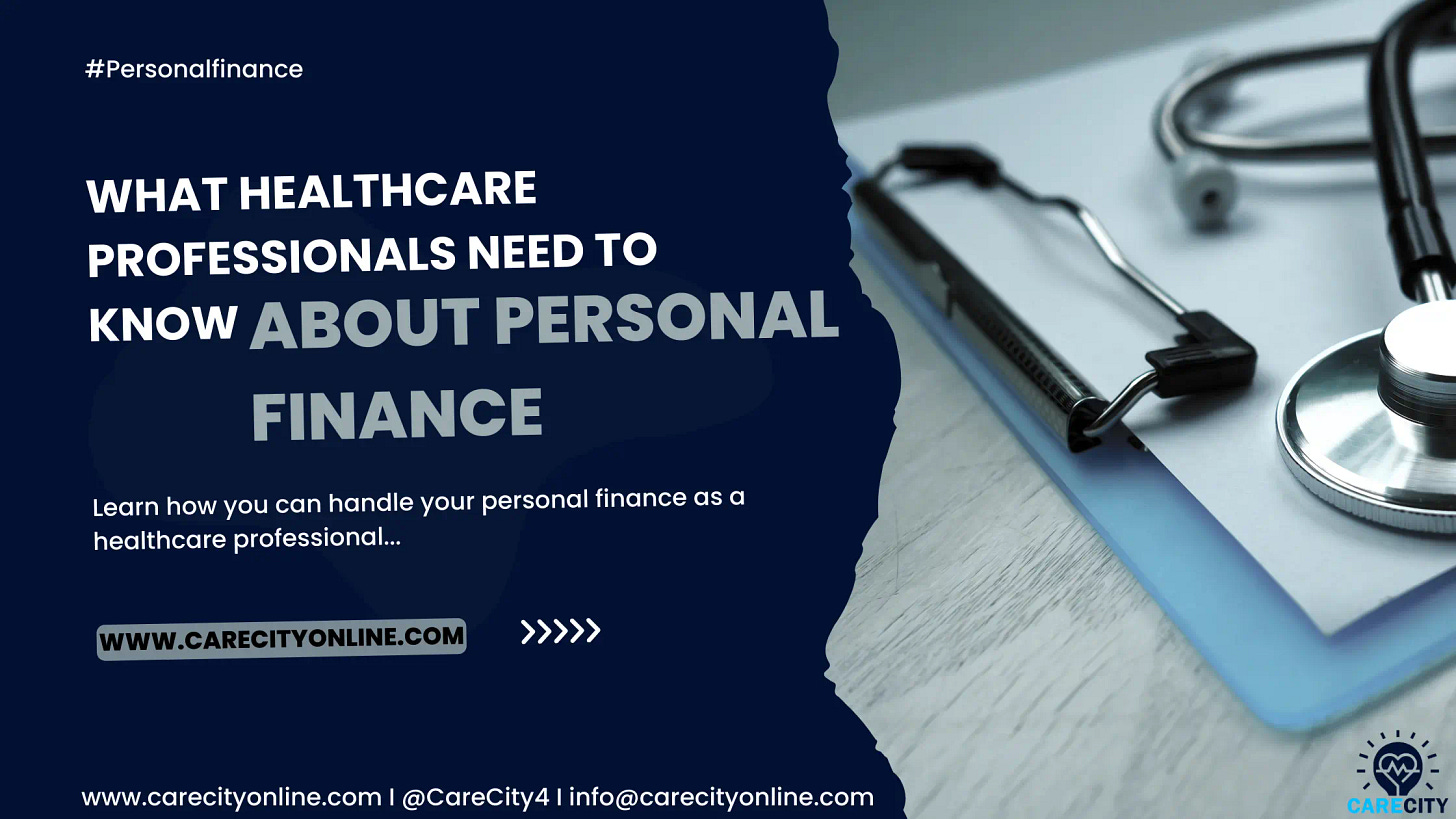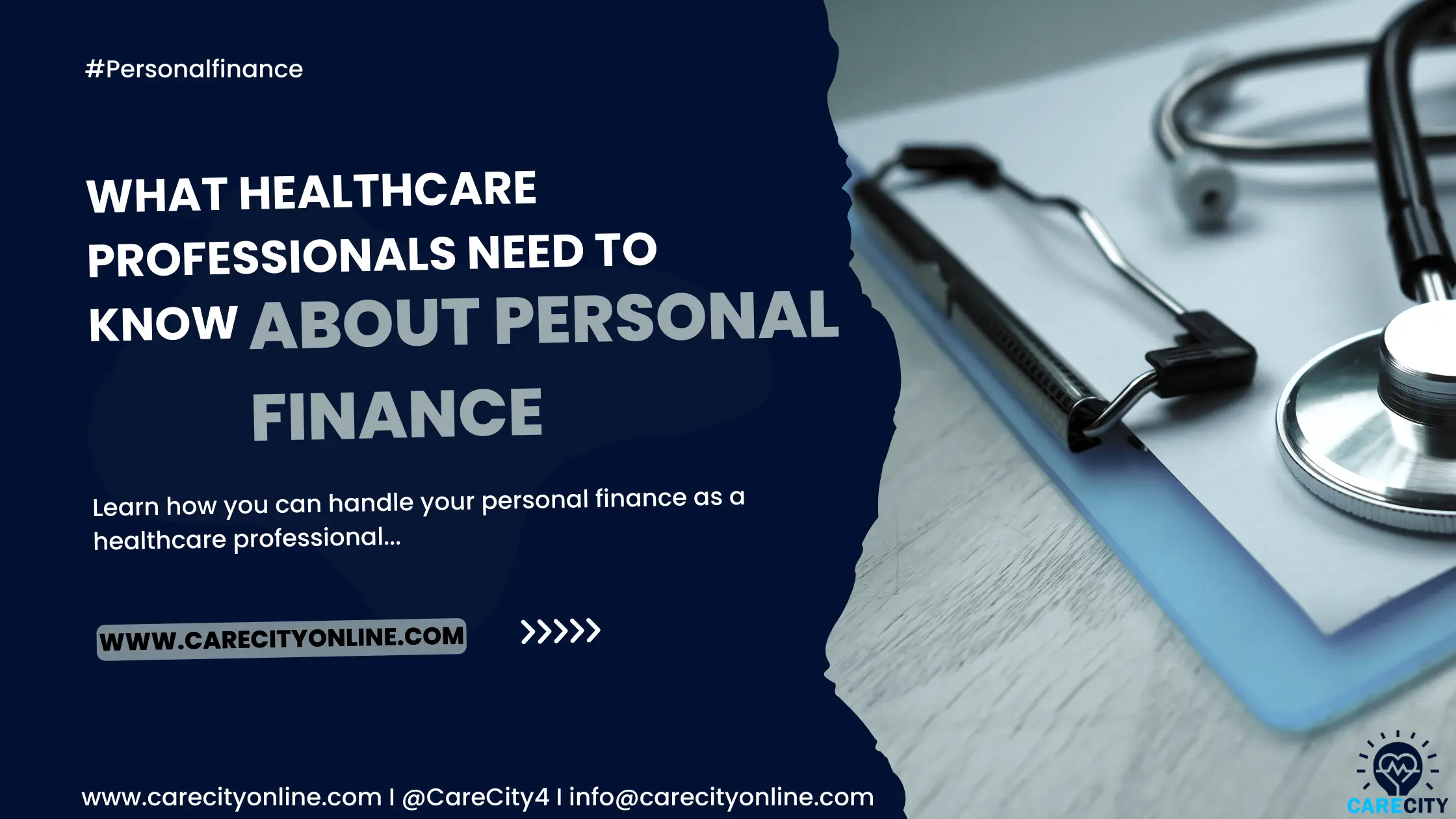
Despite the extensive education and rigorous training healthcare professionals receive, they often need to be more adequately equipped with the tools and skills to manage their finances effectively.
This lack of money literacy is a significant shortcoming, as personal finance and money management are essential life skills crucial for creating financial stability and achieving long-term financial goals.
Healthcare professionals need to understand the basics of personal finance, including creating a budget, managing debt, investing, and other money-related issues. By mastering these skills, healthcare professionals can better manage their finances, reduce stress, and improve their overall well-being and productivity.
They must always be at their productive best while dealing and interacting with patients and clients and be careful not to allow personal deficiencies and inefficiencies to creep into their daily dealings with patients.
The present global economic situation is already placing a lot of strain on all industries and, in turn, affecting people and their work. The healthcare industry is also bearing its burden as far as the global economic meltdown is concerned, and healthcare professionals need to start adapting and adopting new financial management strategies and techniques to survive the harsh economic weather, especially in Nigeria and African countries.
Healthcare professionals can adopt personal finance strategies to maintain financial stability, prevent poor financial decisions or habits from affecting their productivity, and ensure that the quality of care they provide to patients and clients remains uncompromised.
This article explores various proven money strategies healthcare professionals can use to keep their financial lives healthy.
Here are a few strategies healthcare professionals can employ to keep their financial lives healthy.

- Seek Employment That Can Provide For Your Basic Needs: Kindly notice that I mentioned needs because “problem no dey finish” (Nigerian pidgin, meaning you can’t exhaust your problems). Seek gainful employment that can at least provide for your basic needs and ensure you start saving.
- Create A Budget and Stick To It: Writing something on paper is easy. However, you have to make it a lifestyle consciously. You must be disciplined enough and stick to your budget if you want to take charge of your finances. This budget must capture all minor and major expenses, like lifestyle, personal needs, and professional requirements, such as scrubs, CPD courses and license renewal.
- Maximize Your Resources: You do not need to get the latest technology available if it does not contribute to your productivity. Your laptop can also be your reading tab, and you can get grants, scholarships, and free e-books from your work or local library instead of paying out of pocket at all times.
- Take Calculated Investment Risks: While your money is sitting pretty in the bank and getting gradually deducted due to bank charges and inflation, you should make it work for you. You can start a business, fund a business, invest in stocks or real estate, or even invest in smart contracts such as cryptocurrencies. In this case, you will need the services of professionals who can guide you on the kind of investment to do.
- Create Passive Income: Healthcare professionals have a lot of opportunities to create passive income from their practice. It just takes some thinking differently and entrepreneurship. You can start a private clinical practice on the side, create your own healthcare product or do something online. There’s so much possibility in the healthcare ecosystem.
- Associate With Like Minds: Interact and form connections with other healthcare professionals actively taking personal finance matters seriously; let them inspire and teach you. Work and learn from them; if you can’t find one, build a community yourself. It improves your accountability and makes it easier for other healthcare professionals seeking to improve their finances.
- Build An Emergency Fund: Your aim must be to put a part of what you earn somewhere to serve as a cushion in case things get sour (layoffs or global recessions). An emergency fund can also ease the burden of personal emergencies (which we can’t really predict); an example is an unexpected illness or an accident.
In all these, I have avoided mentioning “taking extra shifts”. While this may look like a way to get more money, I believe it is ineffective.
Though common among healthcare professionals, especially nurses and doctors, it is perceived as a popular way of generating income. This implies that you must be physically present and dedicate time and effort.
Not only can it lead to physical exhaustion, but it is also unsustainable and can harm work-life balance.
Remember, the idea is to use smart techniques to maintain a healthy financial life.
We hope this article benefited you. If yes, drop a comment or share this with your friends and colleagues.
Hello there to all our wonderful readers🥰.
We are focusing on growing our Substack newsletter and have paused/reduced publishing on our official website. We are reducing publishing on our website for two major reasons:
- To revamp/redesign our website: Revamping and redesigning websites take time and we don’t want to wait until the whole design is finished before we continue publishing. So, instead, we would focus on our newsletter while the redesigning is ongoing. Most of our articles will be published in our newsletters—Care City Weekly and The Digital Health Report. While a few will be published on the website. Once redesigning is done, we will now resume publishing full-time on the website.
- To grow our Substack newsletters: We are seizing the opportunity to also focus on building our Substack newsletters. While the redesigning is ongoing, we are trying to use one stone to kill two birds. Our newsletters have been powerful tools that have helped us reach a lot of readers. And we haven’t really dedicated enough time to nurturing them. With this little “website publishing break” we hope to invest more time in building our newsletters on Substack. And we can’t do it without you, our faithful wonderful ever-present readers.
We need you to help us grow our newsletters.
How can you help us?
- Subscribe: It’s free, and we won’t flood your inbox with marketing stuff. We only send important emails to you. No one likes too many emails in their inbox.
- Share: You can share our emails with your colleagues, friends and network. If you enjoyed a piece, sharing it with someone means more people get to enjoy it, right? There’s always a share button at the end of our emails so you can use it to share the things you love.
- Comment: Yes, if you have some time and you really enjoyed the piece, you can drop a comment. We love comments.
You see, easy, right?
So, go ahead, subscribe now and let’s grow our community together.
Send corrections, and inquiries to info@carecityonline.com.






Drop Your Comment